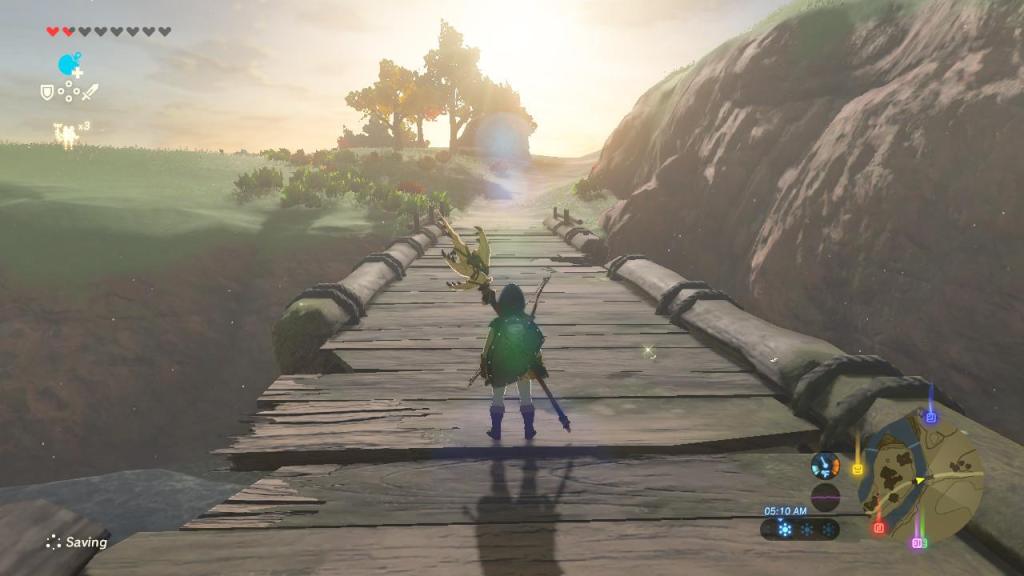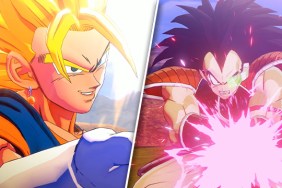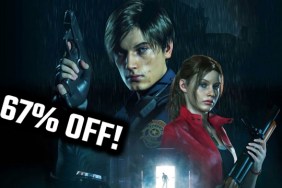It was back in 2011 when Skyward Sword brought the first inklings of the modern RPG to Zelda, and though I enjoyed what I saw, it made me nervous. Collecting bugs and various monster parts and materials to upgrade shields, bows, pouches, and other adventuring essentials was fun, totally optional, and usually very achievable every time Link returned to Skyloft.
Regardless of whether the player had been intentionally scavenging specific rare spoils or not, there would usually be enough in your pack to make something happen anyway. I think the reason I was nervous was because while Skyward Sword’s level of RPG influence was minimal and felt right, taking it too many steps further could compromise what makes Zelda what it is. My fears culminated during a playthrough of Twilight Princess HD last year, during which a friend walked into the room and asked “so, how do you level up in this game?” I quickly excused myself and became sick in the nearest bathroom.
Though far more of an RPG than any Zelda to date (in terms of established genre mechanics and systems, not necessarily literal role-playing), Breath of the Wild has masterfully assimilated the proper amount of RPG elements to suit an open-world rendition of the franchise, a feat that took me over 60 hours to begin to fully appreciate. While cooking, hunting, gathering, collecting and enhancing gear, and even crafting are all integral to the experience, Nintendo still draws hard lines. Link doesn’t level up, he doesn’t gain experience points, and he’ll never face an enemy that is mathematically impossible for him to defeat.
 Skyward Sword's upgrade path, though simple, was no slouch. It set the table for Breath of the Wild.
Skyward Sword's upgrade path, though simple, was no slouch. It set the table for Breath of the Wild.
Though Nintendo’s limits on full Excel-spreadsheet nerdery may be a shortcoming in the eyes of those who revel in such systems, if the idea of an RPG is to role-play then shouldn’t I be able to slay the final boss if I, the player, role-playing as the hero, am skilled enough? It’s odd that Dark Souls and now Zelda champion such outside-the-box thinking when it ought to be role-playing games that consider such matters the most heavily. To be fair, some do. But I’d like to see more of it.
This harmony of complexity and restraint saturates the entire Breath of the Wild experience, so much so that it can be difficult to fathom the amount of playtesting likely required to keep things thoroughly involved without veering toward calculators-out RPG drudgery. It’s almost as if the more involved components of some RPGs are actually the antithesis of role-playing; do you really feel more like a Pokémon trainer when you’re scouring Smogon on your smartphone looking up guides on EV and IV training?
Or, how about when you’re playing Xenoblade Chronicles X and have to check the game’s wiki for where one tiny, obscure collectible can be plucked from the far-reaches of the map, just to enhance a stat-boosted weapon or rare piece of gear, or in some cases simply to progress a prominent side quest or even the main game? It’s not that I want titles to temper their meta elements for the sake of those less interested in laborious (but certainly sometimes worthwhile) ordeals. Rather the initial layer, before you begin spending most of your time on GameFAQs and Google, ought to be more organically involved, enriching, and worthwhile, and this is truly where Breath of the Wild excels.
 Which is more fun: enhancing gear using a menu, or by meeting a vibrant character?
Which is more fun: enhancing gear using a menu, or by meeting a vibrant character?
I’d be willing to bet that in a scenario where guides, Google, GameFAQs, and other such resources were banned, many players would walk away from Breath of the Wild feeling it was actually more involved than many complicated RPGs, because in Breath of the Wild they’d still try everything. Other titles’ non-mandatory systems, while robust and involved, might easily be be breezed over or ignored for their text and number-heavy complexity.
If nothing else, the organic nature of Zelda’s scavenging, crafting, and upgrading is a true strength; you can still “farm” parts from Guardians the way you might materials in other games, but each encounter is genuinely unique, often epic, and winnable even with basic gear, though the reward of, say, ancient Sheikah items does serve as fine incentive for engaging with the game’s RPG-lite systems. Slay Guardians, harvest materials, create ancient weapons, slay more Guardians, repeat. Breath of the Wild has hardly invented this, but it will happen whether you intend it to or not, even if you’ve just picked up 3D games for the first time. Organic scalability, then, is an area where Zelda now truly excels.
There’s more to dive into as well; with BotW’s wearable gear being very diverse but also very limited in quantity, (compared again to, say, XCX, where the sheer volume of gear exceeds many MMOs), there’s little reason to whip out your phone and Google “best Zelda armor” when the joy of uncovering a rare piece and of not knowing what else remains is so palpable. Though at the end of the day Zelda is a still an adventure series very carefully grafting more and more RPG elements as it matures, it’s difficult to cite another game where true role-playing takes the fore more prominently than Breath of the Wild, at least in recent memory.
 Shrines are where Zelda is still truly about adventure and puzzle-solving.
Shrines are where Zelda is still truly about adventure and puzzle-solving.
Details like 3D models for every obtainable item, with physics that send spoils rollings down hills or flying through the air during intense fights further enhance this, and in an unforeseen flourish sees Zelda addressing issues that virtual reality development will eventually need to breach. Separate topic, separate article, but I doubt snapping up identical overworld sparkles that represent every item in the game will fly when playing in VR.
I’d very much prefer Zelda’s foray toward RPG-dom to stop where it stands post-Breath of the Wild, but I said the same after Skyward Sword and am clearly OK with what’s manifested since. As long as the teams at Nintendo continue to abide by what’s deemed to be the essence of Zelda at a given time, then I suppose things are likely to continue working out fine. Perhaps more notable is that these mainline entries take four, five, and sometimes six years to develop. With that kind of time, here’s hoping five years from now I’ll be writing about how RPGs have learned to borrow from Zelda, instead of the reverse.







